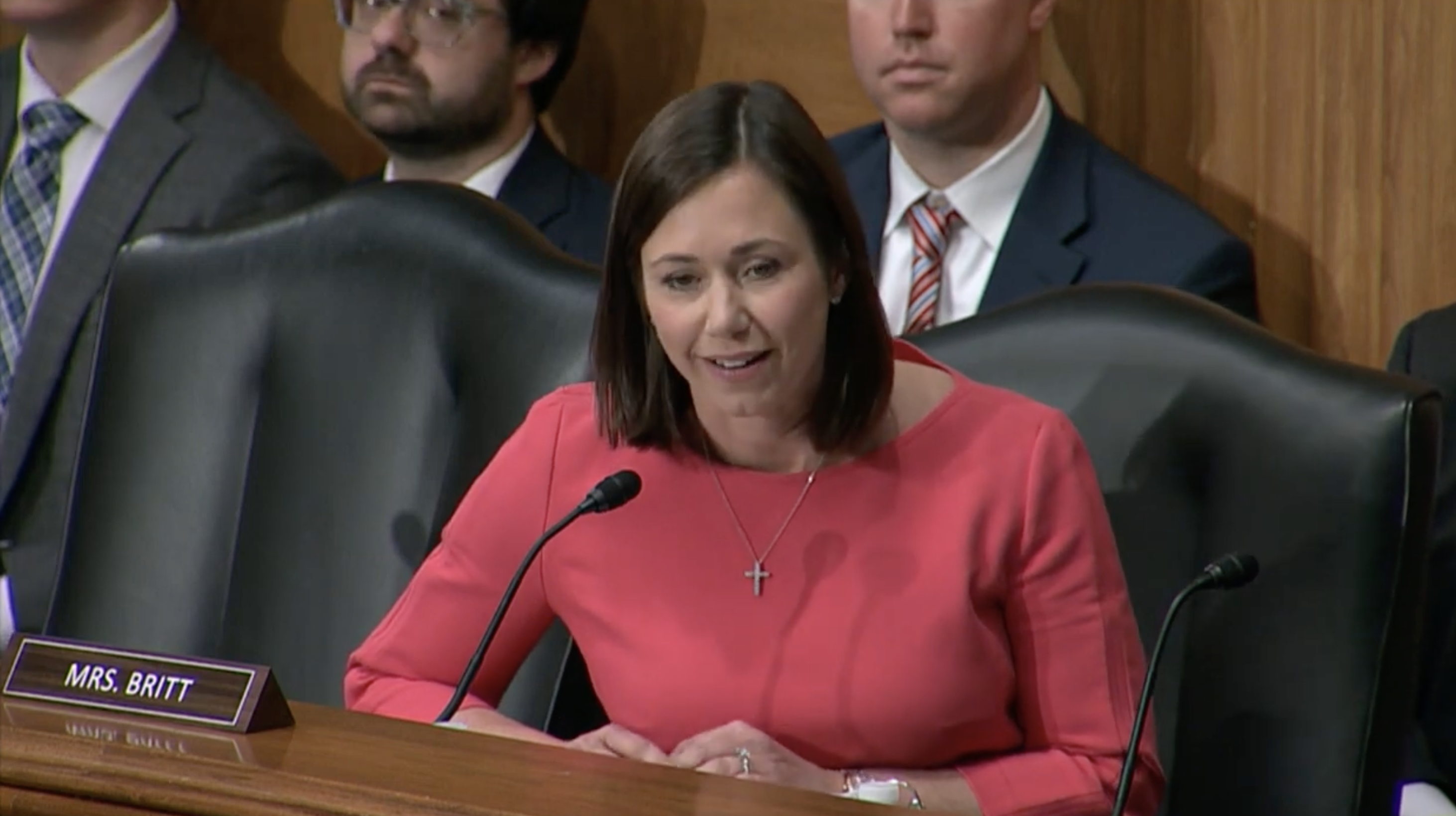|
Getting your Trinity Audio player ready...
|
U.S. Senator Katie Britt, R-Ala., a member of the Senate Committee on Appropriations, recently joined her colleagues in advancing the Fiscal Year 2024 Agriculture, Rural Development, Food and Drug Administration, and Related Agencies Appropriations Act, which included targeted funding for agricultural programs important to the state of Alabama.
The bill advanced by the Senate Appropriations Committee consisted of numerous Alabama priorities supported by Senator Britt, including robust funding to both combat Chronic Wasting Disease (CWD) and continue the National Feral Swine Damage Management program, in addition to looking to develop new strategies to address this threat.
In February of this year, the Alabama Department of Conservation and Natural Resources confirmed a third case of CWD in Lauderdale County. The disease, a fatal neurological illness affecting cervids that has no known treatment or vaccines currently available, could devastate Alabama’s $1.8 billion hunting industry if allowed to spread. Funding for feral swine management is additionally vital to Alabama due to the estimated $50 million in agricultural damage caused in the state each year.
Additionally, the bill provides substantial funding for rural utilities and rural development programs under the U.S. Department of Agriculture, which support infrastructure improvements and economic development in rural communities.
“This critical funding would grow opportunities for families in Alabama’s rural communities, so that zip code does not define access to the American Dream. Food security is economic security and national security, and I am glad to see important programs prioritized in this bill to safeguard commodities and resources vital to our nation. I will continue to fight to ensure that Alabama’s hardworking farmers, ranchers, and cattlemen can feed and clothe our state, country, and world long into the future,” said Senator Britt.
The FY2024 Agriculture, Rural Development, Food and Drug Administration, and Related Agencies Appropriations Act now moves to the full Senate for consideration.






















































